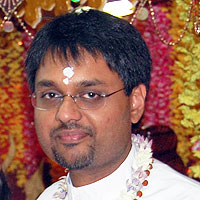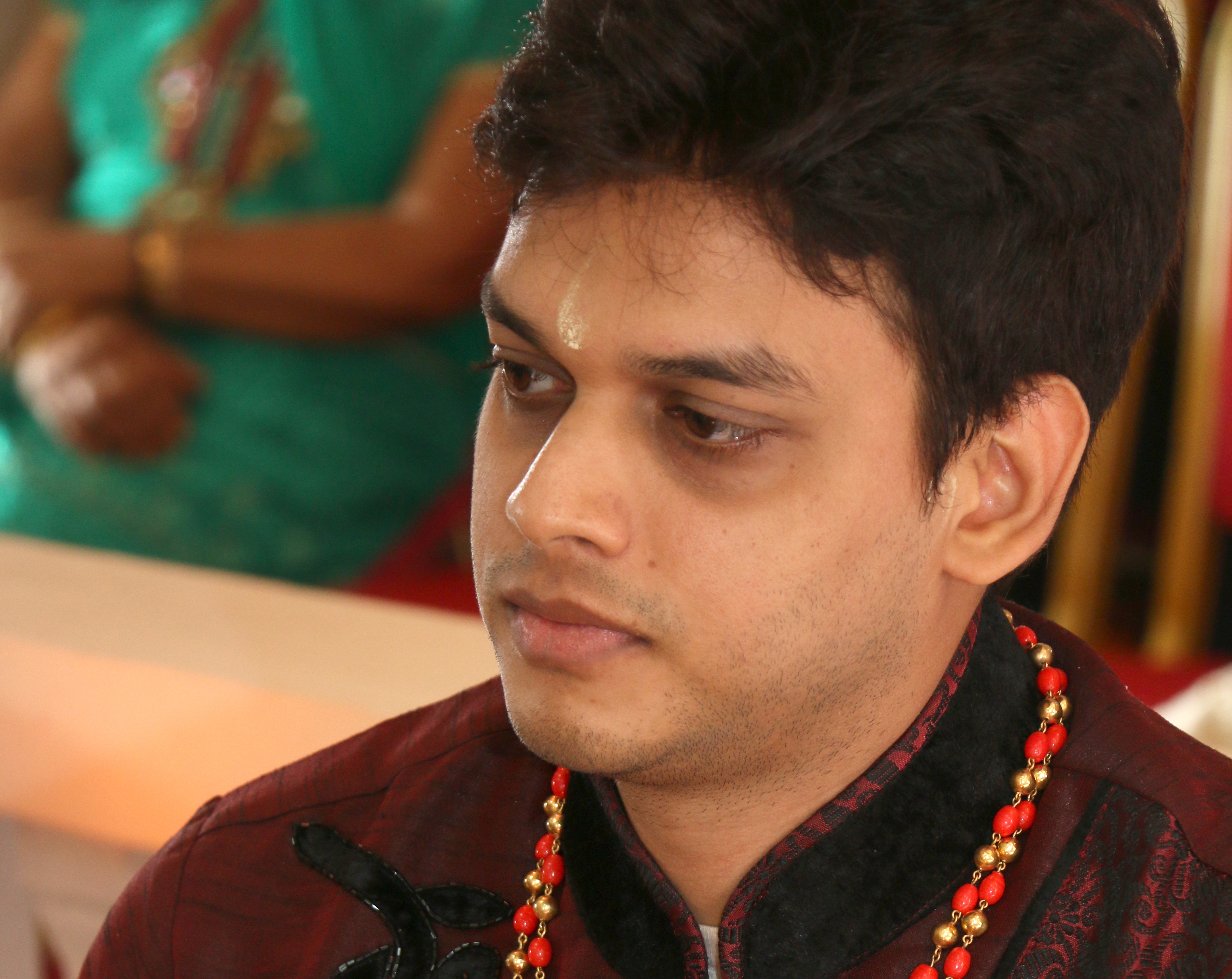As we remember and honour our ancestors during Pitra Paksha through the prescribed rituals, let us also deepen our knowledge of the philosophical background for these practices in keeping with Swaha’s credo of enlightened ritualism. The Swaha publication, “What You Need to Know About Hindu Death Ceremonies” (2016) by Paramacharya Pt. Hardeo Persad states, “In this world of form, name and existence, death is inevitable. Life and death emphasise the duality of this world.” This publication also provides explanations to frequently asked questions on the nature of the soul in relation to death:
Death and the Soul
What is death?
According to Sanaatan Dharma, any definition of death must be stated in the context of the soul, together with the cosmological laws that govern all creation. Laws relating to karma, transmigration of the soul and reincarnation are all intertwined since death is part of the continuing cycle of birth, life, death and rebirth.
The union of the soul with a particular body is known as birth and its separation is called death. Death is certain for the body but not the soul. It occurs when the organs of the physical body cease to function. The body is temporary and perishes with time. It undergoes several major changes, namely: birth, growth, maturity, decay and death. Throughout these changes, the soul remains untainted and pure, unaffected in any way. In death, the soul disengages itself from the body.
The Bhagavad Gita addresses the permanence of the soul in Chapter 2, verse 20: “The soul is never born nor dies, nor does it become only after being born. For it is unborn, eternal. Everlasting and ancient, even though the body is slain, the soul is not.” Again in Chapter 2, verse 30, Lord Krishna says: “The soul, dwelling in the bodies of all, can never be slain: therefore, you should not mourn for anyone.”
This immutable nature of the soul is described in the Shri Raamcharitramanas: “Eeshvar ans jeev avinaashi.” This means that the soul (jeev) is part of the imperishable Supreme Soul (Eeshwar). All other Hindu scriptures describe the soul as imperishable, free from birth and decay. It is all-pervading and beyond time, space and form. It is unaffected by the phenomenal world, by change.
What dies at death?
The human being has three bodies, namely, the physical, astral and causal. Five koshas or sheaths circumscribe these bodies:
| Kosha | Sheath | Body |
| Annamaya Kosha | Food sheath | Physical body |
| Praanamaya Kosha | Air sheath | Astral body |
| Manomaya Kosha | Mind sheath | Astral body |
| Vigyaanamaya Kosha | Knowledge sheath | Astral body |
| Aanandamaya Kosha | Blissful sheath | Causal body |
With the disintegration of the Annamaya Kosha, the physical or gross body dies. It begins to decompose from the moment of death. Yogis have indicated that within three days of the disposal of the physical body, the astral body disintegrates. Clairvoyants have claimed to see different colours, usually at cremation sites, at the time when the astral body disintegrates. The soul remains in the causal body after the disintegration of the astral body until transmigration. There is no death for the soul.
Can the soul experience pain?
Shrimad Bhagavad Gita states that the soul remains untouched and does not experience pain, happiness, grief or other emotions. Chapter 2, verse 23 says: “Weapons cannot cut it nor can fire burn it. Water cannot wet it nor can the wind dry it.” According to this verse, the soul remains unaffected by death.
What occurs after death?
It can be said that death marks both an end and a beginning for both the departed and those who were close to the departed. In reference to death ceremonies, Kaanda 13 of Atharva Veda states that “when the dead body has been completely burnt, the fire must be put out. Water must be sprinkled on the fire. Enough water must be sprinkled so that grass can grow once more.” Life continues in this world even after the death of those we hold dear. For the departed soul, there is also continuity; our scriptures state that after the body dies, the soul undergoes further embodiment in the reincarnation process.
The process of reincarnation, an integral link between death and birth, is addressed in chapter 2, verse 22, of the Gita, when Lord Krishna says to Arjuna: “As a man shedding worn-out garments takes other new ones, likewise the embodied soul, casting off worn-out bodies, enters into others which are new.” Chapter 2, verse 27 says: “Death is certain for the born and rebirth is inevitable for the dead.”




Leela
Thank you for this detailed article. It has given me peace.